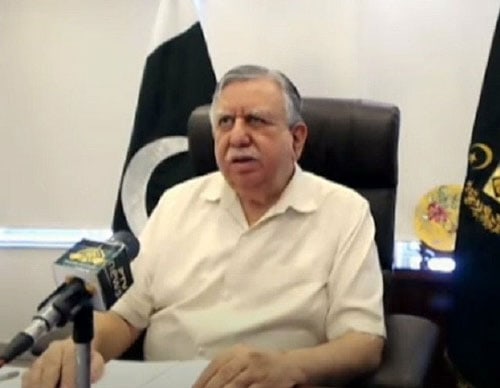No tax increase for salaried class in budget
Staff Reporter Islamabad
Federal Minister for Finance Shaukat Tarin said on Sunday the country dealt with Covid-19 situation in a better way and predicted that the growth rate would move to six percent in the next fiscal year.
“Growth rate is projected at five percent this year and would move further upward to six percent during the next fiscal year,” he said while addressing a virtual press conference and added that the government has developed short and long-term plans to achieve the target.
Tarin said there was a need to pursue sustainable and inclusive economic growth for everyone in Pakistan.
The minister provided details on a number of initiatives and measures that were part of the government’s economic policy.
“We have to pursue inclusive and sustainable [economic] growth. There should be similar [economic] growth for everyone including the rich, the poor and the middle class.”
That kind of economic growth could only be achieved when “fundamental fault lines” were corrected, Tarin said, adding that after a “long time”, the government was carrying out a big planning exercise, was focused on it was focused on it and would act on it.
The finance minister said that economic growth had appeared along with stabilisation due to the government’s focus on certain targeted sectors such as housing, agriculture, industry and exports.
He added the projection of 3.94 per cent GDP growth rate was a figure which provided “hope that if we move forward towards growth then maybe the next year we might have 5pc growth and more than 6pc the next year after that.”
Tarin proceeded to provide details of the strategy which had been formulated after his becoming the finance minister and said that short, medium and long-term planning had been carried out on some 12 sectors and would be presented before the prime minister by the end of the month. “What is in that whole strategy? The first thing is price stability.”
Tarin said inflation had increased all over the world and its impact was felt on Pakistan as well. He outlined a number of measures which would be taken to control price stability.
Before elaborating on those measures, he explained that Pakistan’s position had changed from a country with a surplus of food to one with a deficit which had to import, blaming it on the lack of attention paid to the agricultural sector.
To address this and the problem of price stability, “we will have to take administrative measures at the start.”
As part of those measures, strict action would be required against people engaged in profiteering and hoarding practices and food supply would be increased.
“We will tackle this through creation of strategic reserves and dump food wherever people try to profit.”
For medium and long-term measures, he said: “We will create structures such as commodity warehouses and cold storages and will want that farmers come and sell their produce themselves in the markets so price stability arrives.”










